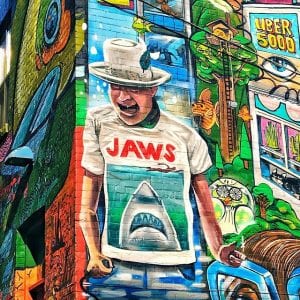Universal Declaration of Human Rights (UN General Assembly 1948)
-Dignity and equal inalienable rights of all members of human family foundation of freedom, justice and peace in the world
-Disregard and contempt for human rights resulted in barbarous acts, outraged the conscience of mankind.
-Freedom of speech/belief freedom from fear
-As a last resort, or for rebellion against tyranny and oppression, HR should be protected by rule of law
-Common standard of achievement for all peoples and all nations
-Strive by teaching and education to promote respect for these rights and freedoms
Article 1: Born free with reason and consciousness, act together
Article 2: Everyone is entitled to these rights without any distinction
Article 3: Right to life, liberty, and security
Article 4: No slavery!
Article 5: No torture, cruel degrading treatment or punishment
Article 6: Recognition as a person before the law
Article 7: Equality before the law
Article 8: Right to legal representation
Article 9: No arbitrary arrest, detention or exile
Article 10: Right to fair trial
Article 11: Innocent until proven guilty
Article 12: No interference with privacy, family, home. No attacks
Article 13: Freedom of movement
Article 14: Right to seek asylum
Article 15: Right to nationality
Article 16: Right to marry, family protected by society and the State
Article 17: Right to own property
Article 18: Freedom of thought, conscience and religion
Article 19: Freedom of opinion and expression
Article 20: Peaceful assembly
Article 21: Take part in government, equal access to public service, will of the people the basis of the authority of government
Article 22: Right to social security
Article 23: Right to work, equal pay for equal work, unionize
Article 24: Right to rest and leisure
Article 25: Standard of living; food, clothes, housing, medical, social services, and security, esp. mothers and children
Article 26: Right to education, it shall develop personality, strengthen human rights and freedoms, promote understanding, tolerance, and friendship
Article 27: Participate in cultural life of the community, and share in scientific advancement and benefits, and IP rights
Article 28: Social and international order
Article 29: Duties to the community
Article 30: Do not re-interpret this document to destroy the rights and freedoms outlined here
UN Declaration of the Rights of Indigenous People (UN General Assembly 2007)
-Indigenous people are equal, the rights of all people are different, and should be respected as such
-All people contribute to the diversity and richness civilization
-Racial, religious, ethnic or cultural superiority is wrong on every level
-Indigenous people should be free of discrimination of any kind
-Indigenous people have suffered from historic injustice
-Urgent need to respect and promote the inherent rights of Indigenous people in the State, and their traditions
Article 1: Right to all human rights outlined in UN Charter and UDHR
Article 2: Free and equal
Article 3: Self-determination
Article 4: Exercise the right to self-determination, autonomy/self-governance
Article 5: Maintain and strengthen their institutions while participating in those of the State
Article 6: Right to nationality
Article 7: Right to life, physical and mental integrity, liberty and security
Article 8: Right NOT to be assimilated or have their culture destroyed
Article 9: Right to belong to an indigenous community
Article 10: Not to be forcibly removed from their lands
Article 11: Right to practice, and revitalize cultural traditions, past and present
Article 12: Right to manifest, practise, develop, and teach their spiritual/religious traditions
Article 13: Revitalize, use, develop and transmit histories, languages, oral traditions, etc. and names
Article 14: Establish and control their own educational systems, and/or State-based education
Article 15: Dignity and diversity of their cultures, traditions and histories
Article 16: Establish their own media, and have access to all media
Article 17: Enjoy fully rights established under labour law; no dehumanizing work
Article 18: Participate in decision-making matters which would affect their rights
Article 19: States shall consult and cooperate with indigenous peoples in matters that concern them
Article 20: Maintain and develop their political, economic, and social systems
Article 21: Improvement of economic and social conditions
Article 22: Particular attention to Indigenous elders, women, youth, disabilities
Article 23: Right to determine and develop strategies for development
Article 24: Traditional medicines, health practices, conservation of plants, animals, and minerals, access to all social and health services
Article 25: Maintain and strengthen their distinctive spiritual relationship with lands, territories, and waters, and coastal seas
Article 26: Right to their lands, territories and resources
Article 27: States establish and implement fair process giving due recognition to Indigenous people regarding land, territories, and resources
Article 28: Redress; restitution, compensation for confiscated lands
Article 29: Conservation and protection of the environment
Article 30: No military activities on indigenous land
Article 31: Maintain, control, protect and develop cultural heritage, knowledge, cultural expressions
Article 32: Determine and develop strategies for their land and territories
Article 33: Determine and develop their own identity/membership, and to obtain citizenship in the State in which they live
Article 34: Promote, develop and maintain institutional structures, customs, spirituality, etc.
Article 35: Determine the responsibilities of individuals to their communities
Article 36: Maintain and develop contacts, even across borders
Article 37: Right to recognition, observance, and enforcement of treaties
Article 38: States shall take appropriate measures (legislative) to follow this declaration
Article 39: Right to have access to financial aid and technical assistance from States
Article 40: Prompt decision through just and fair procedures in conflict resolution with States or other parties
Article 41: The UN and affiliates shall contribute to the realization of this document
Article 42: Permanent Forum on Indigenous Issues and other agencies will follow up
Article 43: This is the LEAST we could do
Article 44: These rights are granted to male and female indigenous individuals
Article 45: None of this should be used to diminish any indigenous individual
Article 46: Nothing in this document should be used to infringe on the rights of Indigenous individuals


